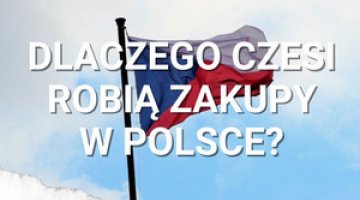The Czech Republic: Milos Zeman is taking his first steps as president
Milos Zeman was sworn in as the president of the Czech Republic on 8 March. He announced the names of his closest aides and presented his priorities for the next five years several days afterwards. Vratislav Mynar was appointed head of the Presidential Office (chancellor). Mynar is a businessman and the head (and a sponsor) of the Party of Civic Rights – Zeman’s people (SPOZ), of which Zeman is an honorary president. Hynek Kmonicek will be in charge of foreign affairs at the Presidential Office.Kmonicek is from the opposition Czech Social Democratic Party (CSSD), is an Arabist, and is currently serving as ambassador to Australia.
Domestic issues were at the forefront of Zeman’s inauguration speech. The president presented himself as a moderator in political discussions, promised to back the poorest citizens, and pointed to the pathological areas he intended to deal with. Among these, along with mafia structures and neo-Nazi fighting squads, the president also mentioned “a great section of the media” which he accused of “brainwashing citizens”. The politicians gathered at the inauguration responded with enthusiasm to the criticism of the media. President Zeman will pay his first foreign visit to Slovakia, and will then visit Austria and the other neighbouring countries. Jose Manuel Barroso, the President of the European Commission, is expected to visit the Czech Republic towards the end of March; the EU flag will be hoisted at the Prague Castle during this visit. Zeman’s predecessor, Vaclav Klaus – who opposes deeper integration within the EU – did not agree to this. Zeman has also announced the ratification of the law introducing the European Financial Stability Facility, the rescue fund for eurozone member states.
Commentary
- Vratislav Mynar is one of a small number of Milos Zeman’s closest political aides to join him at the Prague Castle. Thus Zeman is distancing himself from part of his most unpopular aides, first of all Miroslav Slouf (the chief advisor to Prime Minister Milos Zeman in 1998–2002). Owing to the nomination of Hynek Kmonicek, the president will not only gain an experienced diplomat (a former deputy foreign minister) but also a potential connection with the leadership of the CSSD, who stand the greatest chance of forming the next government (the incumbent parliament’s term ends in spring 2014).
- Zeman places less emphasis on foreign issues than Klaus did, and he will focus primarily on domestic affairs. As was the case with his predecessor, he intends to support business through diplomacy, especially in markets outside the EU. It may also be expected that he will attach less significance to promoting democracy and human rights than Vaclav Havel or Zeman’s rival during the presidential election, the minister of foreign affairs, Karel Schwarzenberg.
- Zeman, who defines himself as a Euro-federalist, has promised to make a number of moves to show himself as distinct from his predecessor and to correct the Euro-sceptical image of the Czech Republic. In pursuing this goal he may expect support from the Ministry of Foreign Affairs. Some room for compromise with the Foreign Ministry has been found, one proof of which is the lack of objection from Mr Schwarzenberg to Zeman recommending Vladimir Remek (a former Czechoslovak cosmonaut, currently member of the European Parliament representing the Communists) as a candidate for ambassador to Moscow. However, the new president, who wants the Czech Republic to join the eurozone, is unlikely to change the European policy of Prime Minister Petr Necas, which in many areas is close to the views of Vaclav Klaus.




